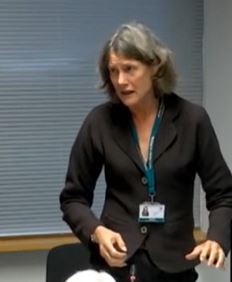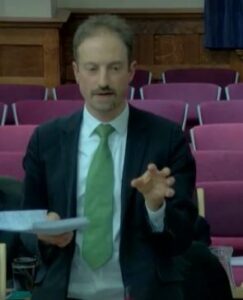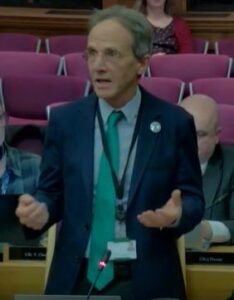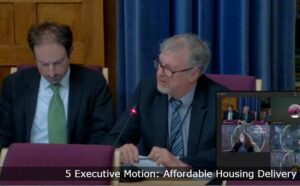Government must mandate councils to meet net zero targets, say Surrey Greens.
Surrey County Council will now demand more help from central government to achieve local net zero targets, thanks to a Green Party motion agreed today.
The council has a target of 2050 to achieve zero emissions (and 2030 for the Council itself) but Cllr Catherine Baart (Green, Earlswood and Reigate South) highlights the need for more help and political will from central government to make this happen.
A motion submitted by Cllr Baart to the full council meeting on Tuesday December 10th asks the council to produce a report identifying the additional finance, powers and partnership arrangements needed to deliver its 2030 and particularly 2050 target. The report will be considered by SCC’s decision-making Cabinet, with a view to asking central government to give councils the resources they need to achieve their targets.
Explaining her motion, Cllr Baart said: “Public concern about climate change is growing steeply and demand for effective action is expected to increase with every new disruptive weather event. As a council, our aim is to create conditions for wellbeing and prosperity. But this council is struggling to make sufficient progress in reducing emissions in Surrey from energy use and transport. As the LGA says, councils work at the front line of people’s daily lives, shaping places and providing vital services that hold communities together and keep people safe. The choices this council makes about its net zero commitments will reverberate for hundreds of years to come.”
Cllr Baart said that SCC’s 2030 net zero target for its own estate is “just on track”, with “straightforward wins” like LEDs in street lighting achieved. This is positive, but plans for using photovoltaics to generate power, a central step to net zero, are “bogged down” in connectivity and financing problems.
Cllr Baart shared the fears of Local Government Association members that net zero targets are becoming increasingly hard to achieve. “County councils have a direct impact on their areas’ emissions, through their involvement in transport, energy, planning, procurement and public health,” she said. “So local government can take potentially enormous climate action; research shows that local councils can deliver net zero at half the cost of a national approach, while delivering three times the benefits of achieving net zero, from growth, jobs, skills and health benefits.
“I agree with the Local Government Association that local councils need more powers, flexibility, resources, certainty, clarity, access to technical support and data from central government for the target dates to be met. I agree with all the independent expert climate change bodies that are calling on central government to go further and faster to empower local councils to act on climate change.”












